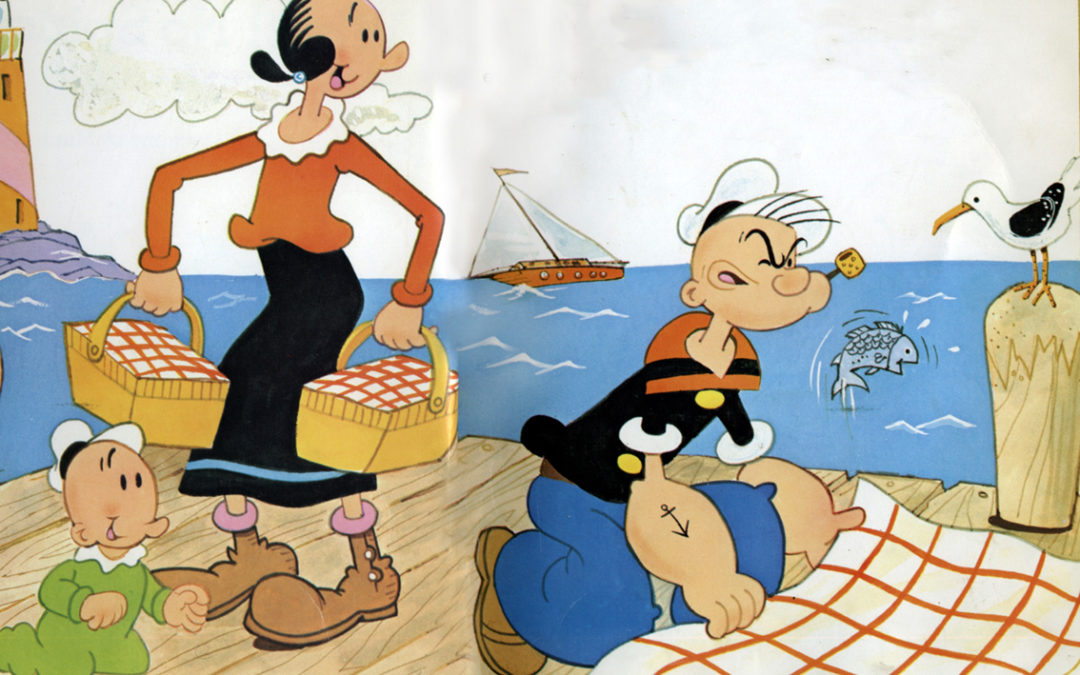 Several Popeye stories include picnics –all with spinach. There is one picnic in which Olive Oyl tries to shift Popeye from his tried-and-true diet. It’s Edward Knapp’s What! No Spinach, and at this picnic, Olive offers Popeye baskets packed with salami, fresh rye...
Several Popeye stories include picnics –all with spinach. There is one picnic in which Olive Oyl tries to shift Popeye from his tried-and-true diet. It’s Edward Knapp’s What! No Spinach, and at this picnic, Olive offers Popeye baskets packed with salami, fresh rye...
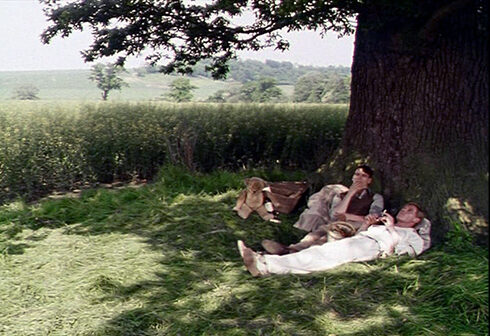 Sturridge’s strawberry picnic in Brideshead Revisited is mainly faithful to Waugh’s novel. Sebastian Flyte and Charles Ryder’s idyllic picnic and intensely close friendship is a moment of respite in their otherwise often messy lives. Particularly Sebastian’s....
Sturridge’s strawberry picnic in Brideshead Revisited is mainly faithful to Waugh’s novel. Sebastian Flyte and Charles Ryder’s idyllic picnic and intensely close friendship is a moment of respite in their otherwise often messy lives. Particularly Sebastian’s....
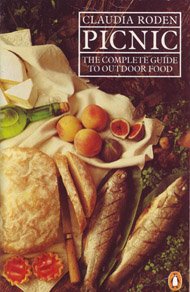 Roden’s Picnic appeared in England as Picnic (1981), then revised and retitled Everything Tastes Better Outdoors (1984). Her impetus is the belief that “There is something about fresh air and the liberating effect of nature which sharpens the appetite and...
Roden’s Picnic appeared in England as Picnic (1981), then revised and retitled Everything Tastes Better Outdoors (1984). Her impetus is the belief that “There is something about fresh air and the liberating effect of nature which sharpens the appetite and...
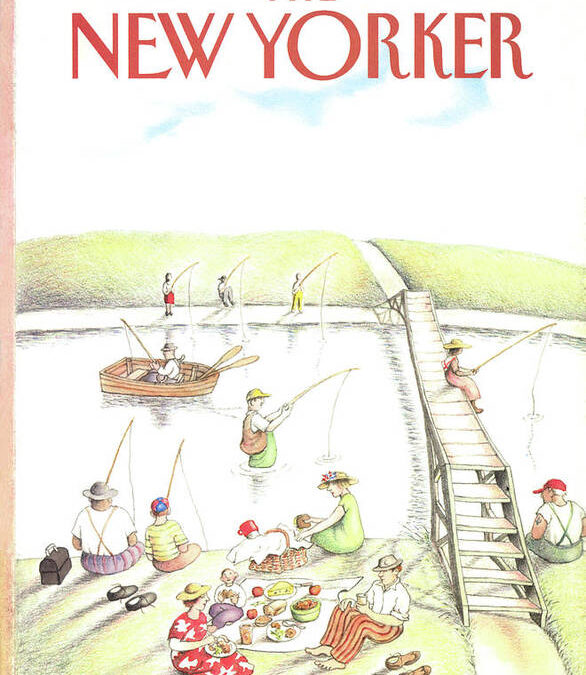 Burgess’s Picnic by a River is The New Yorker’s August cover. By the side of a placid river, a mother, father, and son sit on a plate of cheese, a bowl of salad, a loaf of bread, fruits, and lemonade, Mother has a plate, and the son has a sandwich. Shoes off, they...
Burgess’s Picnic by a River is The New Yorker’s August cover. By the side of a placid river, a mother, father, and son sit on a plate of cheese, a bowl of salad, a loaf of bread, fruits, and lemonade, Mother has a plate, and the son has a sandwich. Shoes off, they...
 Transforming the popular children’s song “Teddy Bears’ Picnic” into a death picnic is Trevor’s metaphor for portraying the 1980s generation as infantile and short on morality. Six months into their marriage, Edwin, a twenty-nine-year-old...
Symons’s catchy title One Continuous Picnic: A History of Eating in Australia is an exaggeration. Picnic is used to raise expectations of social conviviality and high spirits in this historical survey of Australia and its cookery. See Michael Symons. One Continuous...
Transforming the popular children’s song “Teddy Bears’ Picnic” into a death picnic is Trevor’s metaphor for portraying the 1980s generation as infantile and short on morality. Six months into their marriage, Edwin, a twenty-nine-year-old...
Symons’s catchy title One Continuous Picnic: A History of Eating in Australia is an exaggeration. Picnic is used to raise expectations of social conviviality and high spirits in this historical survey of Australia and its cookery. See Michael Symons. One Continuous...
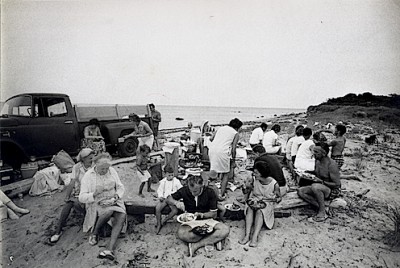 Claiborne’s A Feast Made for Laughter (1982) relates the anecdote of the “Chefs’ Picnic” (1965) staged on Gardiners Island, East Hampton, NY, for twenty-five and catered by five four-star chefs. According to Claiborne, he was the star. His...
Claiborne’s A Feast Made for Laughter (1982) relates the anecdote of the “Chefs’ Picnic” (1965) staged on Gardiners Island, East Hampton, NY, for twenty-five and catered by five four-star chefs. According to Claiborne, he was the star. His...
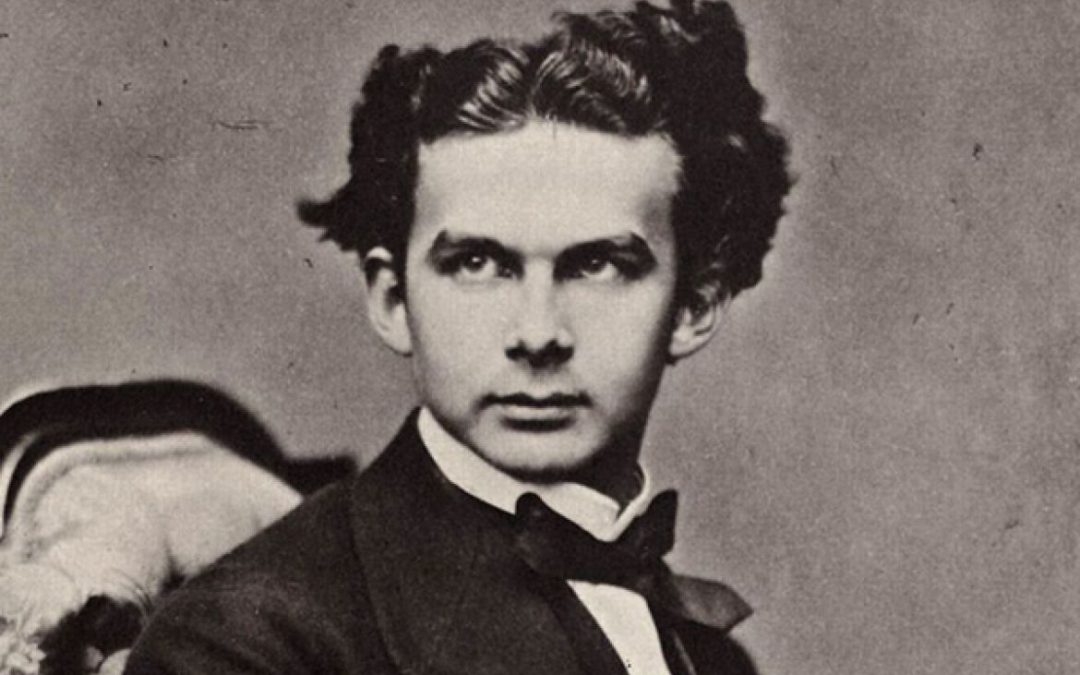 Peters’ verse narrative The Picnic in the Snow: Ludwig of Bavaria (1982, rev. 1986) is a bio-drama about Ludwig II, King of Bavaria, an unhappy gay man, creative and destructive, who “cultivated the esthetic experience and the dream world.” ...
Peters’ verse narrative The Picnic in the Snow: Ludwig of Bavaria (1982, rev. 1986) is a bio-drama about Ludwig II, King of Bavaria, an unhappy gay man, creative and destructive, who “cultivated the esthetic experience and the dream world.” ...
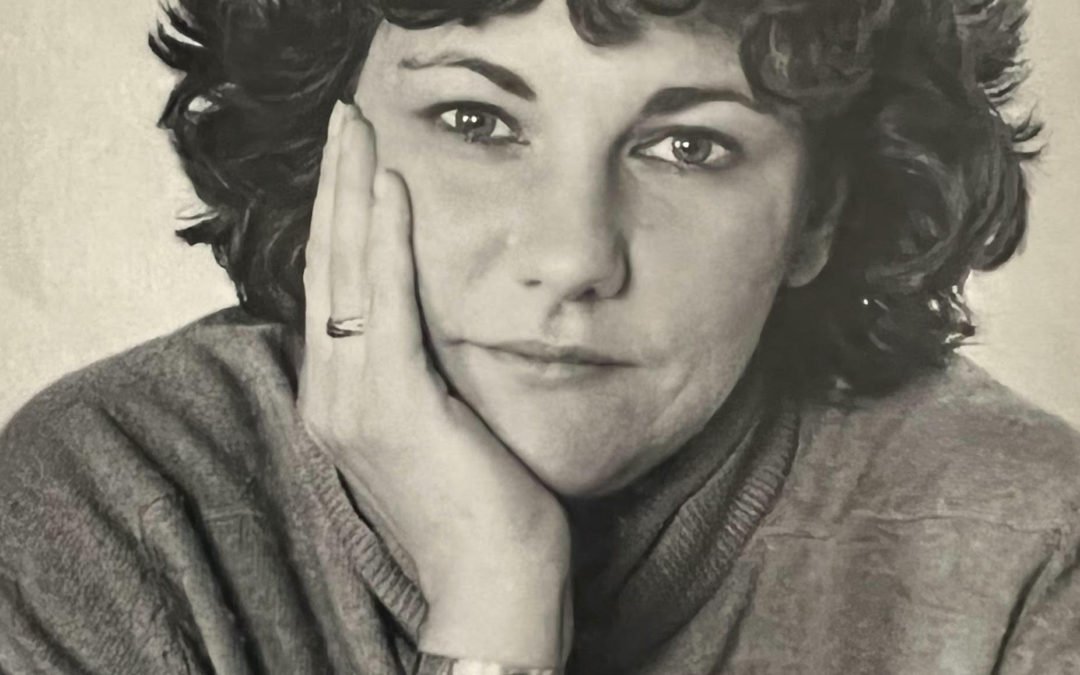 Colwin’s is a New York-based novel about Polly [Dora] Solo-Miller Demarest, married to Henry Demarest, an affluent, Jewish East Manhattan husband she loves, and Lincoln Bennett, an artist who lives in Lower Manhattan. Polly finds family happiness by leading two lives,...
Colwin’s is a New York-based novel about Polly [Dora] Solo-Miller Demarest, married to Henry Demarest, an affluent, Jewish East Manhattan husband she loves, and Lincoln Bennett, an artist who lives in Lower Manhattan. Polly finds family happiness by leading two lives,...
 When picnics are portrayed as unhappy, the contrast is purposeful. Charles McCarry’s picnic nightmare intends to provide a metaphor for the life of Paul Christopher, a Cold War CIA spy still struggling to find his mother, Lori, who was abducted by the Nazis in 1939....
When picnics are portrayed as unhappy, the contrast is purposeful. Charles McCarry’s picnic nightmare intends to provide a metaphor for the life of Paul Christopher, a Cold War CIA spy still struggling to find his mother, Lori, who was abducted by the Nazis in 1939....










